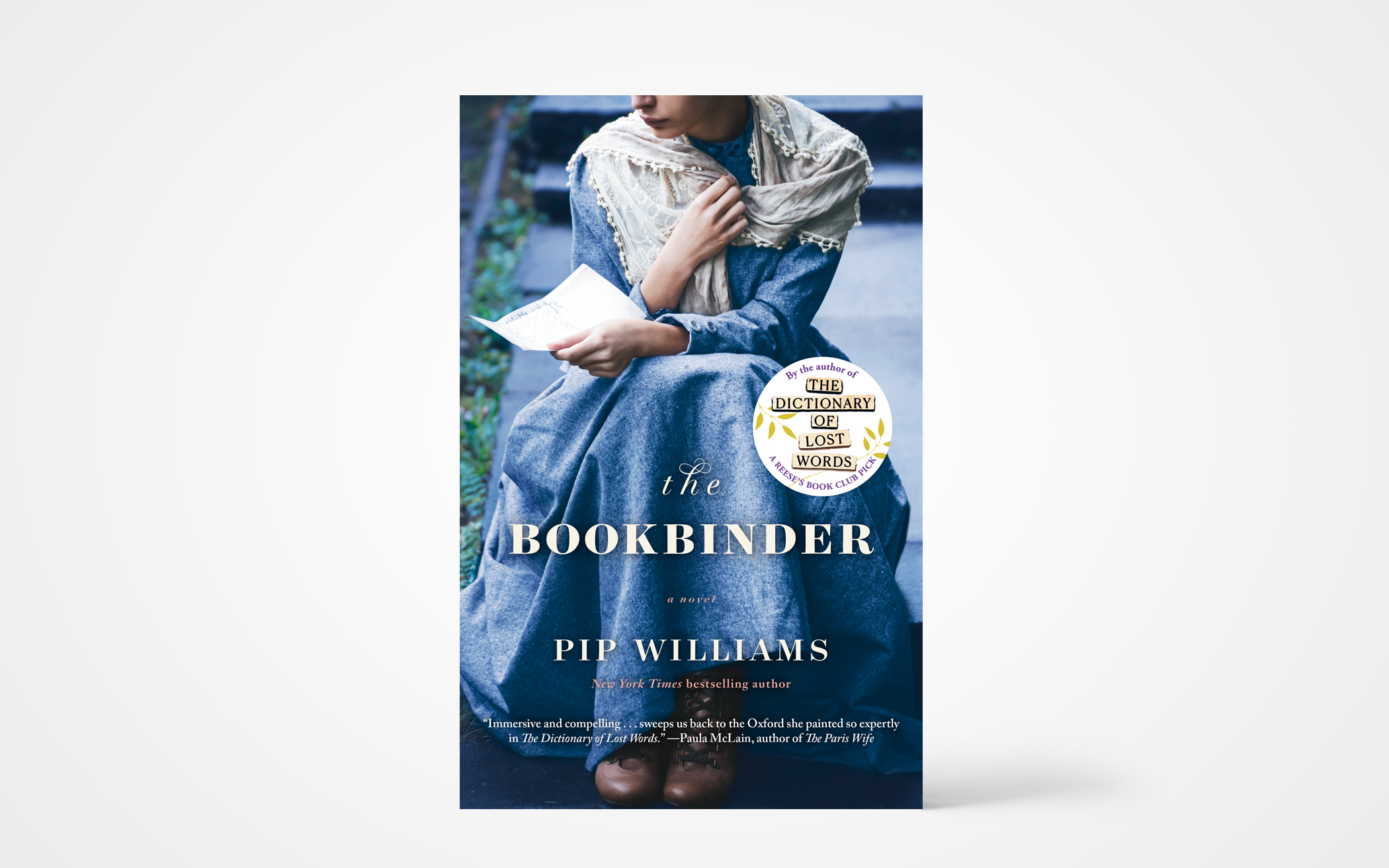Twenty-one-year-old twins Peggy and Maude have worked as bindery girls at the Oxford University Press since they were 12 years old. Now it's 1914, World War I is ravaging Europe, and its repercussions are being felt in Britain, including in the bindery as men leave their employment to enlist.
Though Peggy and Maude look identical, they are vastly different. Peggy has a "scholar's mind" and longs to gain an education at Oxford's Somerville College for female students, across the street from the bindery. But she knows that the college is not for bindery girls. So far, she has been educating herself by reading snippets of the books she's helping to bind and taking home ruined books to add to her deceased mother's library in the narrowboat in which she and Maude live. Whenever Peggy's supervisor catches her reading, she says, "Your job is to bind the books, not read them."
Maude, on the other hand, is seen as "feebleminded" by those who don't know her. But Peggy knows otherwise. She understands that Maude had "a simplicity that unnerved people, an honesty that made them uncomfortable."
Especially since their mother died, Peggy has seen Maude as her "toil," someone she will have to be responsible for all her life and who will most likely stand in the way of Peggy achieving any of her dreams.
But soon dreams of any kind seem pointless as the horrors of war are brought home to Oxford and as Belgian refugees begin to arrive. When Peggy assists, then falls in love with a Belgian soldier, her hopes for the future become more complicated.
When rumors of a dreadful pandemic, later called the Spanish influenza, begin to circulate, Peggy and her community face a terror they could never have foreseen. Changed forever by war, disease, a love relationship, and failure, Peggy realizes that she and all those she loves and cherishes can never return to the way things were before.
The Bookbinder, which briefly references a same-sex relationship and includes several sexually explicit scenes, addresses themes still relevant in the world today—discrimination against poor women, control of education by privileged members of society, the devastation of war, unjust treatment of refugees, and the tremendous sacrifices offered by men and women alike in times of war and pandemic. (Ballantine Books)
About the Author
Sonya VanderVeen Feddema is a freelance writer and a member of Covenant CRC in St. Catharines, Ontario.

